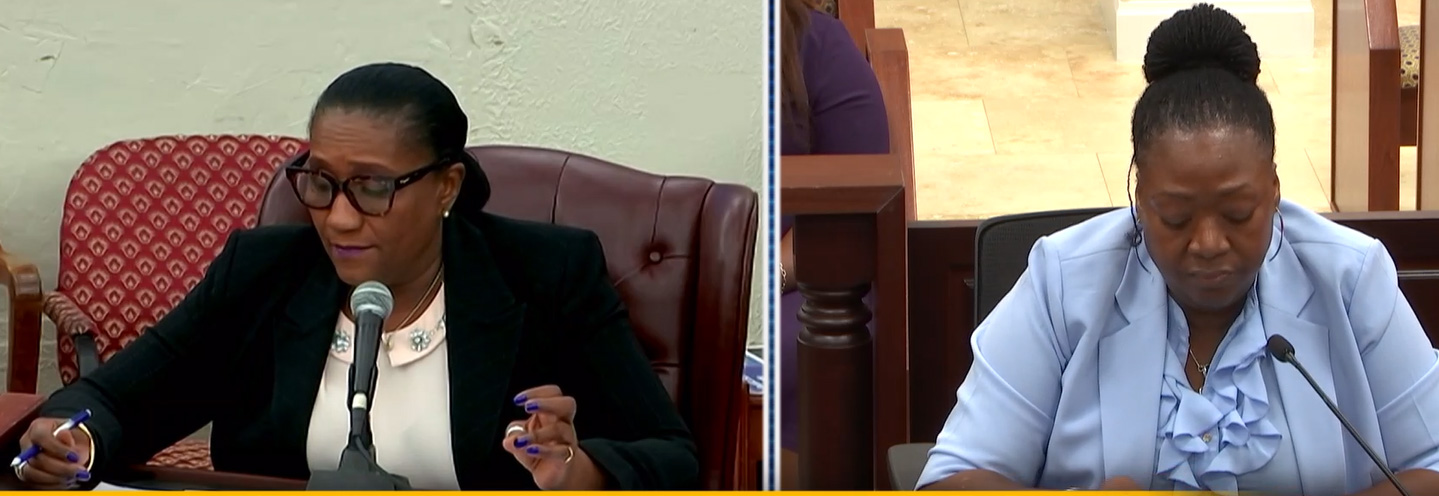
Education officials tasked with giving territory children a head start detailed so much to the Committee on Education and Workforce Development Thursday that Sen. Franklin Johnson said he was hearing about programs that he did not even know existed.
Committee Chair Sen. Marise C. James said the hearing was useful to her because she was drafting legislation concerning education.
Junia John Straker, chief executive officer of Lutheran Social Services, started the meeting by talking about a federally funded program, Early Head Start, designed, she said, “to break the cycle of poverty by providing comprehensive support to preschool children from low-income families.”
Lutheran Social Services initiated the program on St. Croix in 2003 and expanded on that island in 2010. It serves children from birth to 3 years old, as well as expectant mothers. The current program can serve 120 children.
Several senators questioned why Lutheran Services had not expanded to St. Thomas. Straker said there was a problem getting the funding as well as finding an appropriate space to operate such a program.
Sen. Donna Frett-Gregory said that since legislators had recently approved a land swap allowing the building of a school on St. John, there is an opportunity to have a space designed for the Early Head Start Program even though the program was being run by a private non-profit organization.
Carla Benjamin, an assistant commissioner at the Human Services Department, testified concerning the Head Start Program administered by her department. It has 15 classes on St. Thomas and 25 on St. Croix, but none on St. John. Each class can hold 20 students.
She said the Head Start facility was destroyed on St. John during the hurricanes of 2017, but the “cement was being poured” for its new home.
She gave this outline of a day in Head Start, which started with breakfast and Circle Time. “Circle Time is the opportunity to greet everyone and to start the day. Activities include discussion on the calendar, weather, introduction of new letters and numbers of the week and to introduce the day’s activities. Thereafter, children have an opportunity to select developmentally appropriate activities that encourage learning in all areas of development as well as curriculum-facilitated activities. During the afternoon hours, children participate in the family-style lunch, quiet time, and story time. Children have an opportunity to nap or rest quietly. The day ends with children receiving a nutritious snack and activities as they await pick-up by their parents,” she said.
Reuben Molloy, assistant commissioner at the Health Department, updated the committee on the Infants and Toddlers Program, the Maternal Child Health Division, and the supplemental nutrition program for Women, Infants and Children, commonly known as WIC.
The Infants and Toddlers Program, according to testimony, is servicing 36 children on St. Thomas and 96 on St. Croix; the Maternal and Child Health Division is serving 561 prenatal clients and 2,530 children, and the department services 1,305 children and 604 infants through the WIC program.
Johnson said that at the first of the month in grocery stores, he sees buggies loaded up with “chips and Cheetos” and asked if there was a way to ensure children were getting healthy food.
Lorna Concepcion, director of the local office of WIC, said the program was different from the SNAP program (food stamps). She said that WIC participants could only buy healthy food. She added that she thought the SNAP program was trying to find a way to make it more focused on healthy food.
Molloy testified that oral health has been identified as a priority health need during February when 290 students were screened.
During the screenings, cavities were detected in 73 students. The program shared this information with the school nurses so affected students could receive appropriate referrals for treatment. However, under questioning, department officials admitted to not being sure if the follow-up treatment had occurred.
Molloy testified that at an oral health outreach event, dental health kits were distributed to 1,025 children. Each kit contained a toothbrush, toothpaste, dental floss, and a T-shirt encouraging children to adopt daily brushing and flossing habits.
Johnson asked whether any dramatic increases were found in hearing loss in children when screened. He was told no.
Sens. Marice James, Franklin Johnson, Donna Frett-Gregory, Novelle Francis, Jr., Milton Potter, Kenneth Gittens, Marvin Blyden Jr., Diane Capehart, Dwayne DeGraff, Ray Fonseca, and Javan James Sr., and Carla Joseph were in attendance at Wednesday’s hearing.


